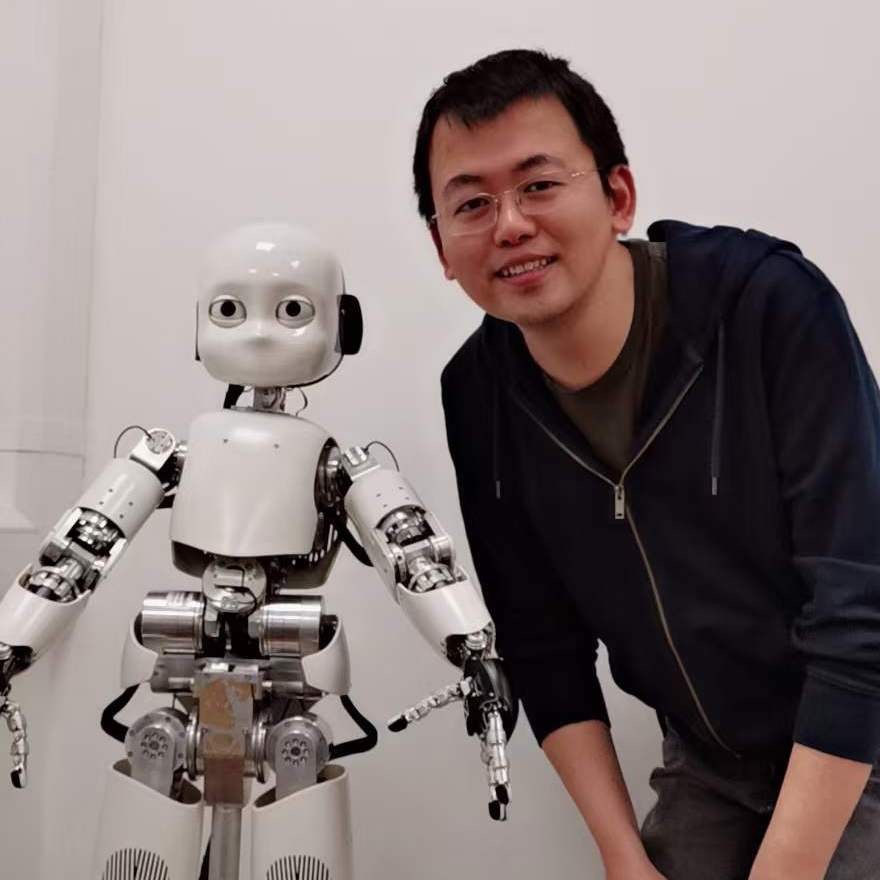This is the web page of the AI and Cyber Security track of the ABCP 2023 Annual Conference, to be held on Friday 7th July and Saturday 8th July 2023.
Programme
Day 1: Friday 7th July 2023 (venue: Alan Turing Building, Room B + Zoom / Webinar ID = 930 8447 5861 + Passcode = 505442)
| 1-2pm | Keynote 1 (40 minus + 10 mins Q&A), Chaired by Dr Chongyan Gu, Queen’s University Belfast, UK |
| 1-1:50pm | USENIX Security 2022 Distinguished Paper: Dos and Don’ts of Machine Learning in Computer Security (Online) Dr Daniel Arp, Technische Universität Berlin, Germany show more/lessAbstract:  Dr Daniel Arp With the growing processing power of computing systems and the increasing availability of massive datasets, machine learning algorithms have led to major breakthroughs in many different areas. This development has influenced computer security, spawning a series of work on learning-based security systems, such as for malware detection, vulnerability discovery, and binary code analysis. Despite great potential, machine learning in security is prone to subtle pitfalls that undermine its performance and render learning-based systems potentially unsuitable for security tasks and practical deployment. In this paper, the authors look at this problem with critical eyes. First, the authors identify common pitfalls in the design, implementation, and evaluation of learning-based security systems. The authors conduct a study of 30 papers from top-tier security conferences within the past 10 years, confirming that these pitfalls are widespread in the current security literature. In an empirical analysis, the authors further demonstrate how individual pitfalls can lead to unrealistic performance and interpretations, obstructing the understanding of the security problem at hand. As a remedy, the authors propose actionable recommendations to support researchers in avoiding or mitigating the pitfalls where possible. Furthermore, the authors identify open problems when applying machine learning in security and provide directions for further research. Bio: Daniel Arp is a postdoctoral researcher in the Machine Learning Group at Technische Universität Berlin. He holds a PhD in Computer Science from Technische Universität Braunschweig and a master’s degree in Computer Engineering from Technische Universität Berlin. His research revolves around the development of learning-based methods to improve the security and privacy of systems, and is regularly published at prestigious venues in computer security. |
| 1:50-2pm | Break |
| 2-3pm | Regular Session 1: AI Applications I, Chaired by Professor Huiyu Zhou, University of Leicester, UK |
| 2-2:25pm | Mining Uncertain Data (Invited Talk) Professor Rajeev Raman, University of Leicester, UK show more/lessAbstract:  Professor Rajeev Raman A lot of data is uncertain, for example data obtained through sensors and data obtained by automatic cleaning and disambiguation. Such uncertain data can be represented in the probabilistic databases framework, which can also be used to represent large collections of data in a succinct way. Mining and pattern-matching in such data is computationally challenging. We present results on a classical problem of sequential pattern mining in this framework. We also look at application in bioinformatics, specifically on TFFMs are sophisticated and flexible mechanisms for representing binding sites in proteins. A TFFM is essentially a Hidden Markov Model (HMM). In this work, we look at efficient algorithms for computing similarity measures for HMMs, which is the basis for tasks such as unsupervised learning and classification of TFFMs. Bio: Rajeev Raman has a BTech from the Indian Institute of Technology, and MS and PhD Degrees from the University of Rochester, USA. He has been a Professor at the University of Leicester since 2001, and is currently Director of Research for the School of Computing and Mathematical Sciences. He has previously held positions at King’s College London, University of Maryland and the Max-Planck Institute for Computer Science. His research interests are Algorithms and Data Structures, Algorithm Engineering, Data Mining and Machine Learning. |
| 2:25-2:50pm | Deep Learning Empowered Design for Sheet Metal Forming Dr Nan Li, Imperial College London, UK show more/lessAbstract:  Dr Nan Li Manufacturing process simulations are an increasingly ubiquitous tool in industrial product development processes, because they enable manufacturers and OEMs to move towards virtual product design validation and optimisation, thereby effectively reducing cycle times whilst simultaneously improving design accuracy and product quality. However, computation time for simulations increases exponentially with the complexity of the component design and manufacturing conditions, and current state-of-the-art solutions still require significant cycle times. Accordingly, there is strong industrial demand for a solution that can significantly reduce computation time. Deep learning (DL) has been identified as a promising enabler to this problem, as the DL-based surrogate models can make predictions under complex design scenarios thousands of times faster than physics-based simulations. My research team has developed novel DL-based manufacturability assessment and optimisation platforms, by employing cutting-edge ResNet Convolutional Neural Network architectures and innovative shape representations. This technology enables near real-time manufacturability predictions and design optimisations for unseen components to suit new forming processes to be brought to light. The technology was the first-of-its-kind to bring over pioneering advances from deep learning to sheet metal forming, and has a potentially major impact to the transportation manufacturing sector. In this talk, I will present several highlights of our ongoing research work, listed as follows: The proposed CTMLP achieves an accuracy of 97.51%, an f1-score of 97.43%, and a recall of 98.91% without pre-training, even with only 48% of the number of ResNet50 parameters. Furthermore, the proposed guided self-supervised learning scheme can improve the baseline of simple self-supervised learning by 1%–1.27%.
Bio: Dr Nan Li is a Senior Lecturer and the Co-Leader of the Advanced Manufacturing Group, at the Dyson School of Design Engineering, Imperial College London. Her team on Lightweight Design for Manufacturing addresses a major challenge facing the transport industry world-wide: developing technological breakthroughs in the manufacturing and design of high-performance lightweight vehicles for a more environmentally friendly footprint. Dr Nan Li has more than sixty publications and ten patents, and extensive experience in applied research projects with industry, funded by multiple research councils and companies. She was awarded the ‘Rowbotham Medal’ by the Institute of Materials, Minerals and Mining (IOM3) for her outstanding contribution to the innovative use of materials for automotive applications. |
| 2:50-3pm | Break |
| 3-4pm | Regular Session 2: AI for Security, Chaired by Dr Chongyan Gu, Queen’s University Belfast, UK |
| 3-3:25pm | How Could the Resource Dynamics of ECUs Reflect Cyberattacks on a Connected Vehicle? Professor Hongmei (Mary) He, University of Salford, UK show more/lessAbstract:  Professor Hongmei (Mary) He Cybersecurity of connected and autonomous vehicles (CAVs) is a critical challenge for advancing CAVs toward reality because a vehicle is a complex cyber-physical system. It is a system of systems. There are more than 100 embedded control units (ECUs) that process 3000 to 5000 signals. These components play an essential role in the safety and comfort we enjoy when driving modern cars. It is difficult to monitor all system signals for cybersecurity. We are trying to find a feasible approach for easy implementation. In a vehicle, there are 6 channels that communicate with external devices. This increases the attack surface of a vehicle and makes the connected vehicle a higher risk. In this talk, we empirically prove the hypothesis that the dynamics of the resources of ECUs on vehicles can directly reflect the cyber-attacks on the vehicle. We conduct a series of experiments on four types of cyberattacks and use machine learning to detect cyberattacks so that we can address cyberattacks in a timely manner, and finally I conclude the presentation with a framework for cybersecurity for connected vehicles. Bio: Hongmei (Mary) He is Professor of Artificial Intelligence for Robotics and Autonomous Systems (RAS) at the School of Science, Engineering and Environment, University of Salford, Manchester, UK. She received her PhD in computer science from Loughborough University, UK, in 2006. Previously, she worked at various universities, including De Montfort University, Cranfield University, University of Kent, Ulster University, and University of Bristol. Prior to coming to the UK, she gained a brief industrial experience at Motorola Design House in China as a lead embedded systems engineer. Her research has been primarily funded by EPSRC, Innovate UK, Leverhulme Trust and industry. She is the Chair of IEEE UK & Ireland RAS Chapter, Chair of task force in AI and Edge Computing for TRAS in Adaptive Dynamic Programming and Reinforcement Learning Technical Committee (ADPRLTC) of IEEE Computational Intelligence Society. She is a member of the EPSRC Peer Review College and the EU Horizontal Robotics Research &Innovation Programme Expert Panel. |
| 3:25-3:50pm | Noncryptographic Device Authentication for the Internet of Things: Deep Learning-Powered Radio Frequency Fingerprint Identification Dr Junqing Zhang, University of Liverpool, UK show more/lessAbstract:  Dr Junqing Zhang This talk will introduce a noncryptographic device authentication for Internet of things (IoT) by exploiting radio frequency fingerprints. Deep learning has been adopted to explore inherent and unique hardware impairments of wireless transceivers as device fingerprints. Extensive experimental evaluation has been carried out with LoRa taken as a case study. The talk will conclude with the remaining challenges and visions. Bio: Junqing Zhang is a Lecturer (Assistant Professor) with the University of Liverpool, UK. He received a PhD degree in Electronics and Electrical Engineering from Queen’s University Belfast, UK in 2016. From Feb. 2016 to Jan. 2018, he was a Postdoctoral Research Fellow with Queen’s University Belfast, UK. His research interests include the Internet of Things, wireless security, key generation, radio frequency fingerprint identification and wireless sensing. He is the recipient of the EPSRC New Investigator Award. |
| 3:50-4pm | Break |
| 4-5pm | Regular Session 3: AI Fundamentals and AI Industry, Chaired by Professor Huiru Zheng, Ulster University, UK |
| 4-4:25pm | A Manifold View of Deep Learning (Invited Talk) Professor Hujun Yin, University of Manchester, UK show more/lessAbstract:  Professor Hujun Yin AI has abruptly landed in the public domain, creating both excitement and fear. Before its seemingly sudden emergence, researchers have long been working on advanced learning methods and effective and efficient ways for dealing with and understanding large amount of data of increasing complexity, dimensionality and volume. Whether it is in biology, social sciences, engineering, robotics or computer vision, data is being sampled and cumulated in unprecedented speed and scale. Systematic and automated ways of representing and hence classifying data are becoming a great challenge. While deep learning has turned into the mainstream methodology for many data-driven machine learning tasks, esp. vision, with abundant deep networks being developed, it’s largely unclear how it comes to its decisions. Making sense of deep learning with the manifold concept can help elucidate the underlying relationships that it is uncovering and reveal its possible shortfalls or instabilities. Manifold concept plays an important role in data representations, not only because of the manifold hypothesis, but also its hidden basis for learning tasks. How well a deep network or its feature maps can capture the intrinsic properties of data will determine the capability and performance of the network. Crude, enduring training may not always guarantee a good representation. Instead, organised feature maps can help optimise and explain outcomes of the network. Examples and case studies will be used to illustrate the manifold concept in a wide range of data-driven methods and learning techniques. Bio: Hujun Yin is a Professor of Artificial Intelligence at the University of Manchester. He is also the head of Business Engagement in AI and Data for the Faculty of Science and Engineering. His research areas include AI, machine learning, deep learning, signal/image processing, pattern recognition, time series modelling, bio-/neuro-informatics, and interdisciplinary applications. He has supervised over 25 PhD students and published over 200 peer-reviewed articles. Prof Yin has received over £5 million funding from UK research councils, EPSRC, BBSRC, Innovate UK and industries across 30 projects. Many of his projects involve industries and local SMEs in developing cutting edge AI solutions. He has served or has been serving as an Associate Editor for IEEE Transactions on Neural Networks, IEEE Transactions on Cybernetics, IEEE Transactions on Emerging Topics in Computational Intelligence, and the International Journal of Neural Systems. He has also served as the General Chair or Programme Chair for a number of international conferences in AI, machine learning and data analytics. He is a member of the EPSRC Peer Review College, a Senior Member of the IEEE, and a Turing Fellow of the Alan Turing Institute. |
| 4:25-4:50pm | Covariance-Controlled Adaptive Langevin Thermostat for Large-Scale Bayesian Sampling Dr Xiaochen Shang, University of Birmingham, UK show more/lessAbstract:  Dr Xiaochen Shang Monte Carlo sampling for Bayesian posterior inference is a common approach used in machine learning. The Markov Chain Monte Carlo procedures that are used are often discrete-time analogues of associated stochastic differential equations (SDEs). These SDEs are guaranteed to leave invariant the required posterior distribution. An area of current research addresses the computational benefits of stochastic gradient methods in this setting. Existing techniques rely on estimating the variance or covariance of the subsampling error, and typically assume constant variance. In this article, we propose a covariance-controlled adaptive Langevin thermostat that can effectively dissipate parameter-dependent noise while maintaining a desired target distribution. The proposed method achieves a substantial speedup over popular alternative schemes for large-scale machine learning applications. Bio: Xiaocheng Shang is an Associate Professor in Mathematics and Statistics at the University of Birmingham; he is also a Turing Fellow of the Alan Turing Institute. His primary research interests lie in the optimal design of numerical methods for stochastic dynamical systems with applications in data science and mesoscopic modelling. |
| 4:50-5:05pm | 2023年浙江AI人工智能行业薪酬报告 (2023 Salary Report of AI Industry in Zhejiang) Mrs Hong Dai (戴虹女士), Deputy General Manager (副总经理), Zhejiang Talent Development Group (浙江省人才发展集团), China (This talk will be delivered in Chinese, 本次演讲将以中文进行) show more/lessBio:  Mrs Hong Dai (戴虹女士) 戴虹女士是浙江省人才发展集团副总经理。她的分管业务主要是高端引才,致力于人才及项目双向引进、国际交流、海外投资等业务。 As Deputy General Manager of Zhejiang Talent Development Group, Mrs Dai is in charge of global talent introduction business. She is committed to two-way introduction of talents and projects, international exchanges, overseas investment and other businesses. |
Day 2: Saturday 8th July 2023 (Virtual only: Zoom / Webinar ID = 927 8231 6129 + Passcode = 335737)
| 1-2pm | Keynote 2 (40 mins + 10 mins Q&A), Chaired by Chaired by Professor Huiru Zheng, Ulster University, UK |
| 1-1:50pm | Data-Driven Intelligent Autonomous Systems: information fusion; event correlation; decision making and planning with an application in security Professor Weiru Liu, Chair of Artificial Intelligence (AI) and Associate Dean for TQEC (Research and Enterprise), University of Bristol, UK show more/lessAbstract:  Professor Weiru Liu Intelligent agents (and to some extent, intelligent robots) in data-driven intelligent autonomous systems, operating in large sensor networks with uncertain and dynamic environments, shall at least possess the following abilities. First, agents shall be able to perceive, analyse and combine uncertain and inconsistent information from multi-model heterogeneous sources in order to establish the true state of events that are of interest. Second, agents shall be able to model, correlate, and make inferences about dispersed events from different sources in real-time in order to achieve situation awareness. Third, agents shall be able to make decisions taking into account constraints and preferences, and to dynamically plan in order to act appropriately. Over the past 20 years, my group, working together with UK and international collaborators, has been conducting research addressing these challenges. First, we developed numerous information fusion approaches to handle uncertain and inconsistent information under different circumstances. We have particularly established some common principles governing the fusion of both uncertain information (especially in numerical forms) and knowledge (especially in logical forms). Second, we developed several methods to correlate and reason with seemingly unrelated events to draw (high-level) conclusions that are beyond the immediate meaning of directly observed events. Third, we have been investigating into approaches for integrating state-of-the-art planning algorithms with traditional agent architectures (such as Belief-Desire-Intension agents). Specifically, we have been looking into how to deploy First Principles Planners (FPPs), which are online planning algorithms, when an agent has no available plans to use. The ability for an agent to evolve its planning capabilities overtime has also been studied. This talk will cover some of our major research results, with several demos (e.g., cyber-physical systems security) illustrating the potentials in real-world applications. In recent years, my group has extended our research to explainable AI (XAI), developing XAI approaches making AI/ML systems more understandable and transparent to end-users, especially non-expert users. In the final part of my talk, I will briefly highlight our current results in XAI research and future challenges. Bio: Weiru Liu holds Chair of Artificial Intelligence (AI) at the University of Bristol, is Associate Dean for Temple Quarter Enterprise Campus (Research and Enterprise) since early 2020. Previously, she was the Faculty Research Director for the Engineering Faculty between 2017 to 2020. Her research interests include uncertain information fusion, event correlation and reasoning, large scale data analytics, agent systems with online planning, with a wide range of applications such as security, healthcare, robotics. Recently, she has been looking into approaches in explainable AI tailored to non-experts as part of an EPSRC funded project. She is also a Co-I of the £10m ESRC funded Centre for Sociodigital Futures examining social implications and the importance of social science in designing future AI technologies. She has published over 200 peer-reviewed papers, with several Best Paper Awards. She chaired a number of international conferences, and was an invited keynote speaker at several international conferences. Prior to joining the University of Bristol in 2017, she held Chair of AI at Queen’s University Belfast, and was the Director of Research for the Knowledge and Data Engineering Cluster for 6 years. She has a sustained track record of securing peer-reviewed, highly competitive funding from a diverse range of funding bodies (over £58m as Principal Investigator or Co-Investigator), and was the PI for the £2.3m R&D grant funded by the Allstate Insurance Company (US) and Invest Northern Ireland on detecting fraudulence medical claims. In 2011, she received a Queen’s Impact Award (sponsored by EPSRC) at Queen’s University Belfast. She has been a member of the UK EPSRC ICT Strategic Advisory Team (SAT) since 2017 and a member of UK Higher Education Research Excellence Framework (REF) 2021 Institutional-level Environment Pilot Panel (ILEPP). She was a member of Independent Research Fund Denmark (DFF), and a member of Academy of Finland AI and Data Science Review Panel. She is also a Co-Director of the Centre for Doctoral Training in Future Autonomous and Robotic Systems: Towards Ubiquity (FARSCOPE-TU) at Bristol. |
| 1:50-2pm | Break |
| 2-3pm | Regular Session 4: AI Applications II, Chaired by Professor Huiyu Zhou, University of Leicester, UK |
| 2-2:25pm | Automated Analysis of Non-Verbal Communication (Invited Talk) Professor Bryan Scotney, Ulster University, UK show more/lessAbstract:  Professor Bryan Scotney Gesticulation, body posture and dynamics are important aspects of human communication along with other natural aspects such as facial expression and gaze. When accompanying speech, these non-verbal aspects play a significant part in the meaning and message conveyed, including information about the mood and engagement of the speaker. They, therefore, play a part in influencing the listener’s assessment of various aspects of the speaker’s character, such as openness, trustworthiness, and sincerity. This talk will describe some recent work on detecting and classifying co-speech gestures using videos of persons engaged in natural speech. We will also discuss a contribution to enhancing the process of video annotation when natural gestures are studied as part of human cognitive, linguistic and communicative processes. Bio: Bryan Scotney is Professor of Informatics at Ulster University since 2004. He is a former President of the Irish Pattern Recognition and Classification Society (2007-14) and member of the Governing Board of the International Association for Pattern Recognition, and formerly Director of the University’s Computer Science Research Institute (2004-15). He has also recently held a Guest Professorship at Keio University, Tokyo, funded by the Top Global University Project of the Japanese Ministry of Education, Culture, Sports, Science & Technology. His research centres on mathematical computation, especially in computer vision. His work has been supported by several EU Framework Programmes and the UK Research Councils. This includes four EU FP5 projects to address issues of harmonisation of Official Statistics; the EPSRCNETWORK in Next Generation Networks Systems and Services; the EPSRC-DST funded India-UK Advanced Technology Centre (IU-ATC) of Excellence in Next Generation Networks Systems and Services; the ESRC-funded project Design for Ageing Well; EU FP7 projects SAVASA on a Standards-based Approach to Video Archive Search and Analysis, and SLANDAIL on a Security System for Language and Image Analysis; EU H2020 projects DESIREE: Decision Support and Information Management System for Breast Cancer, and ASGARD: Analysis System for Gathered Raw Data for biometrics from video data to support investigative tools for law enforcement agencies. He is currently Principal Investigator on an EPSRC-funded project on prevention of online recruitment into human trafficking, and Principal Investigator in the BT-Ireland Innovation Centre, with funding from Invest NI and BT for an extensive research and innovation programme at Ulster. |
| 2:25-2:50pm | Designing Efficient Large-Scale AI Systems Dr Luo Mai, University of Edinburgh, UK show more/lessAbstract:  Dr Luo Mai In the era of AI, managing the vast amounts of data and models required for machine learning systems presents a significant challenge. To address this challenge, we recognise the unique data sparsity of machine learning workloads as well as the heterogeneous nature of AI servers. In this talk, we will describe how large-scale AI systems can leverage data sparsity and heterogeneous resources on AI servers to boost system efficiency. We will illustrate the promise of such a system design using Ekko, a new large-scale recommender system. Ekko has been adopted by leading AI practitioners and benefits billions of users each day. Bio: Luo Mai is an Assistant Professor in the School of Informatics at the University of Edinburgh, where he leads the large-scale system software group. His research contributions have resulted in numerous publications in top-tier computer science conferences such as OSDI, NSDI, VLDB, USENIX ATC, ECCV, ICML, and NeurIPS. Luo has been the recipient of several research awards, including the Chancellor Rising Star in Research, Tencent Research Aware, Microsoft Azure Research Award, and Google PhD Fellowship. Prior to Edinburgh, Luo served as a research associate at Imperial College London and held a visiting researcher position at Microsoft Research. He holds a PhD from Imperial College London. |
| 2:50-3pm | Break |
| 3-5pm | Panel Discussion on “Trustworthy and Responsible AI”, Chaired by Chaired by Professor Shujun Li, University of Kent, UK |
| 3-4:50pm | Panellists: Dr Meng Fang, Assistant Professor in AI, University of Liverpool, UK show more/less Dr Meng Fang Meng Fang is an Assistant Professor at the University of Liverpool in the United Kingdom. His research focuses on developing human-like intelligence capable of understanding and interacting with humans in real-world scenarios. His primary areas of expertise include language understanding, decision-making, and generalisation, with a specific emphasis on natural language processing (NLP) and reinforcement learning/machine learning (RL/ML). He has published approximately 40 papers in the field of artificial intelligence (AI) and NLP (NeurIPS, ACL, ICLR, etc). Moreover, he has received several paper awards, including the Best Paper Award at the Learning on Graphs (LoG 2022) conference. show more/less Professor Weiru Liu Weiru Liu holds Chair of Artificial Intelligence (AI) at the University of Bristol, is Associate Dean for Temple Quarter Enterprise Campus (Research and Enterprise) since early 2020. Previously, she was the Faculty Research Director for the Engineering Faculty between 2017 to 2020. Her research interests include uncertain information fusion, event correlation and reasoning, large scale data analytics, agent systems with online planning, with a wide range of applications such as security, healthcare, robotics. Recently, she has been looking into approaches in explainable AI tailored to non-experts as part of an EPSRC funded project. She is also a Co-I of the £10m ESRC funded Centre for Sociodigital Futures examining social implications and the importance of social science in designing future AI technologies. She has published over 200 peer-reviewed papers, with several Best Paper Awards. She chaired a number of international conferences, and was an invited keynote speaker at several international conferences. Prior to joining the University of Bristol in 2017, she held Chair of AI at Queen’s University Belfast, and was the Director of Research for the Knowledge and Data Engineering Cluster for 6 years. She has a sustained track record of securing peer-reviewed, highly competitive funding from a diverse range of funding bodies (over £58m as Principal Investigator or Co-Investigator), and was the PI for the £2.3m R&D grant funded by the Allstate Insurance Company (US) and Invest Northern Ireland on detecting fraudulence medical claims. In 2011, she received a Queen’s Impact Award (sponsored by EPSRC) at Queen’s University Belfast. She has been a member of the UK EPSRC ICT Strategic Advisory Team (SAT) since 2017 and a member of UK Higher Education Research Excellence Framework (REF) 2021 Institutional-level Environment Pilot Panel (ILEPP). She was a member of Independent Research Fund Denmark (DFF), and a member of Academy of Finland AI and Data Science Review Panel. She is also a Co-Director of the Centre for Doctoral Training in Future Autonomous and Robotic Systems: Towards Ubiquity (FARSCOPE-TU) at Bristol. show more/less Professor Kathleen Richardson Kathleen Richardson is Professor of Ethics and Culture of Robots and AI at De Montfort University. She has carried out research on social, therapeutic and companion robots, and investigated the intersections between pornography and technology. More information can be found at her personal website. show more/less Dr Youcheng Sun Youcheng Sun is Lecturer in Cyber Security at The University of Manchester. Before joining Manchester, Youcheng was a Lecturer at Queen’s University Belfast and he was a postdoctoral researcher in the verification group at the University of Oxford. Youcheng is an expert in AI security and safety. In particular, he pioneered several techniques on the testing of complex intelligent software systems. His research has been funded by companies such as Dstl, BAE Systems, Google and Ethereum Foundation. In the past, Youcheng led the source code testing and verification work for two UK domestic airborne software projects, SECT-AIR and AUTOSAC. He was a member of the EU H2020 project SAFURE investigating safety and security assurance in the design of mixed-critical cyber-physical systems. Youcheng has a strong track record of publications on software engineering, formal verification, embedded systems, robotics and AI safety in top-tier academic conferences and journals, including IEEE S&P (Oakland), ICSE, ASE, CAV, TACAS, NeurIPS, ICCV, ECCV, IJCAI, ICRA, IROS, RTSS, ACM TOSEM, ACM TECS, IEEE TR. show more/less Dr Frank Zhang Frank Zhang is a senior R&D engineer at SOPHOS, a world-leading cybersecurity company. He is responsible for developing and enhancing the threat detection engine, which utilizes machine learning and traditional technologies to safeguard critical data, devices, and infrastructure in millions of SMEs. Additionally, Frank has contributed to the development of AI-based technologies that monitor the safety of elders at home, enable privacy-conscious smart surveillance in healthcare environments, and facilitate time-critical inspections in high-value 24/7 production lines. Frank holds a PhD in Computer Science and is a member of the CBAIA (China-Britain Artificial Intelligence Association)’s Executive Committee. |
| 4:50-5pm | Break |
| 5-6pm | PhD and Postdoc Forum, Chaired by Professor Shujun Li, University of Kent, UK |
| 5-5:05pm | Developing AI Algorithms to Advance Activity Recognition and Gait Analysis Using Smart Insoles Luigi D’Acro, PhD Student, Ulster University, UK |
| 5:05-5:10pm | Security Vulnerabilities in Approximate Computing Yuhang Hao, PhD Student, Queen’s University Belfast, UK |
| 5:10-5:15pm | A Probabilistic Attention Model with Occlusion-aware Texture Regression for 3D Hand Reconstruction from a Single RGB Image Dr Zheheng Jiang, Senior Research Associate, Lancaster University, UK |
| 5:15-5:20pm | Federated Bayesian Optimization for Privacy-preserving Neural Architecture Search Shiqing Liu, PhD Student, Bielefeld University, Germany |
| 5:20-5:25pm | Adversarial Attacks on Deep Learning-Based Radio Frequency Fingerprint Identification Jie Ma, PhD Student, University of Liverpool, UK |
| 5:25-5:30pm | Deep Learning-Enhanced Radio Frequency Fingerprint Identification for Wireless Security Guanxiong Shen, PhD Student, University of Liverpool, UK |
| 5:30-5:35pm | A Graph Neural Network with Negative Message Passing and Stabilized Learning for Graph Coloring Xiangyu Wang, PhD Student, Bielefeld University, Germany |
| 5:35-5:40pm | Federated Many-Task Bayesian Optimization Dr Xilu Wang, Postdoctoral Fellow, Bielefeld University, Germany |
| 5:40-5:45pm | Artificial Intelligence Empowered Field-Based Surrogate Modelling for Blank Optimization In Sheet Metal Forming Haosu Zhou, PhD Student, Imperial College London, UK |
| 5:45-6pm | Judging Panel Discussion |
Organising Committee
- Dr Chongyan Gu (谷翀燕博士), Queen’s University Belfast, UK & Co-Chair of ABCP AIG on Cyber Security
- Professor Shujun Li (李树钧教授), Professor of Cyber Security, University of Kent & Vice-President for IT & External Liaison, ABCP & Co-Chair of ABCP AIG on Cyber Security
- Professor Huiru Zheng (郑慧如教授), Ulster University, UK & Co-Chair of ABCP AIG on Artificial Intelligence
- Professor Huiyu Zhou (周挥宇教授), University of Leicester, UK & Co-Chair of ABCP AIG on Artificial Intelligence
PhD and PostDoc Forum Judging Panel
- (Chair) Professor Shujun Li (李树钧教授), Professor of Cyber Security, University of Kent & Vice-President for IT & External Liaison, ABCP & Co-Chair of ABCP AIG on Cyber Security
- Dr Xiaomin Chen (陈晓敏博士), Northumbria University, UK
- Professor Liangxiu Han (韩良秀教授), Manchester Metropolitan University, UK
- Dr Wanpeng Li (李万鹏博士), University of Aberdeen, UK
- Professor Xianghua Xie (谢向华教授), Swansea University, UK
- Dr Jie Zhang (张洁博士), King’s College London, UK
